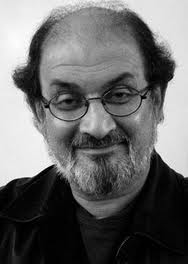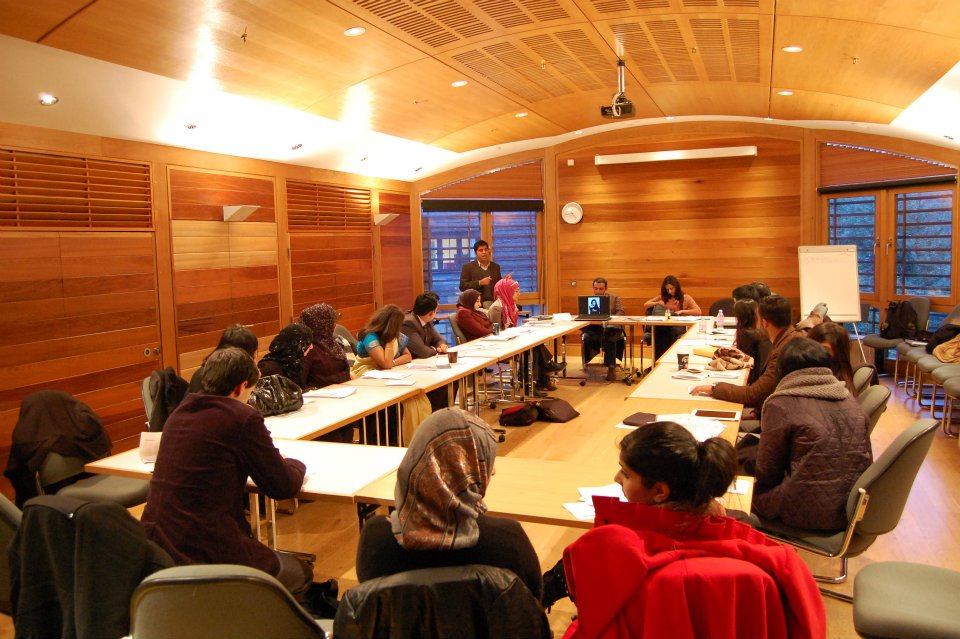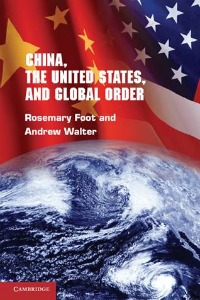
The Myth of the ‘Mighty Minnows’: Small nations aren’t the economic successes they think they are (or may become)
Nationalist movements often argue that small countries are more economically successful than big ones. The Scottish Nationalist Party claims that independence would allow Scotland to advance from ‘its subordinate position within the UK, and generate a new prosperity for Scotland’. And former Plaid Cymru MP, Adam Price, who is currently taking a career break at Harvard University, goes further, wrapping the ‘small equals rich’ argument in a cloak of pseudo-academic jargon. Price’s article, published in an on-line student journal, is entitled ‘Small is Cute, Sexy and Successful’. He argues that smaller countries grow faster because they are more open to trade, more socially cohesive and more adaptable. Rather optimistically, Price even argues that differences in population size alone account for ‘mighty minnows’ outperforming the big five (UK, Italy, …

Does Salman Rushdie Exist?
The recent controversy over Salman Rushdie’s non-appearance at the Jaipur Literary Festival has been widely understood in the stereotyped terms of a threat to the freedom of expression. The belligerence of those Muslims protesting Rushdie’s presence, of course, as well as the eagerness of some Indian authorities to humour them, was entirely reprehensible. But lost in the anodyne narrative about free expression was also the controversy’s political meaning, which I will argue had little to do either with Rushdie or indeed the offended religious sentiments of certain Muslims. Instead this celebrated author has been reduced to a kind of billboard upon which almost any cause can be advertised, and it is in this purely functional guise that he is recognized …

Pakistan’s future from the students’ perspective
As Ishtaiq Ahmed mentions in a recent blog post on the annual Pakistan Future Leaders’ Conference, held in Oxford earlier this month, Pakistani students in the UK have definitively shown that progressive thought is alive and well within the Pakistani community. For example, this student-driven event was unafraid to pick up sensitive issues such as the Balochistan separatist movement amply demonstrating the capacity of young Pakistanis to be fearless and independent in their thinking. Students vowed to work towards making Pakistan a progressive, truly democratic state where people of all creeds can enjoy the fruits of freedom and liberty. Dr. Ahmed, covered numerous topics in his piece; but I want to highlight a few areas in more detail. As mentioned above, …
Thinking in old terms: can a structural adjustment programme work in Greece?
Taking a step back from the immediate uncertainty over Greece (see here for the latest updates), I’m struck by how similar the situation is to those created by the old 1980s/1990s IMF and World Bank Structural Adjustment Programmes (SAPs). Reading accounts of the negotiations (especially a story in today’s New York Times about how the Germans, IMF, and ECB don’t trust the Greeks), you could rather easily replace “Greece” with “Nigeria” or “Senegal” and be transported 20 years back in time. We can go down the similarity-list. An urgent need for new official lending to roll over past debts? Tick. Tough loan conditionality attached? Tick. Domestic pushback and questionable democratic legitimacy? Tick. Of course, it’s all playing out more publicly/more quickly …

The seeds of a green spring: young leaders meet in Oxford to debate Pakistan’s future
For three days (February 3-5) Oxford University was the venue for the Pakistan Future Leaders’ Conference (PFLC), attended by some 300 student-delegates hailing from around 50 universities and colleges in the United Kingdom. This major event was organised by Oxford University’s Pakistan Society, in collaboration with the Oxford Union, and the Pakistan societies of Cambridge University and the School of Oriental and African Studies. Such a large gathering of young Pakistanis in Oxford was reflective of an emerging ‘youth moment’ currently setting the course of politics in Pakistan. Cricketer-turned-politician Imran Khan, who is also an Oxonian, has already tapped into this phenomenon. His recent political rallies in Lahore and Karachi attracted exceptionally large crowds of younger people, forcing the country’s …
The U.S. Needs a Grand Strategy, Not Grandstanding
In the New Hampshire debate, Mitt Romney trumpeted his willingness to engage China in a trade war. Romney’s longstanding efforts to paint himself as someone willing to stand up to China exemplify an alarming trend of China-bashing in U.S. politics. Rick Santorum, among others, has echoed Romney, declaring, “I want to beat China.” Such statements are primarily targeted at shoring up political support and secondarily at painting President Obama as being soft on China. We should not take them as an accurate indication of future policy. And despite this overriding political calculus, these remarks are on to something – Beijing’s currency manipulation gives China a competitive advantage in global trade, and its abuse of intellectual property rights ought to be …
David Miliband: offering a vision for the future or a defence of the past?
When David Miliband spoke at the Cambridge Union last week, was he espousing a new, more creative foreign policy or did he simply wish to defend the Bush-Blair approach of the preceding decade? David Miliband has become something of a peripatetic political being. For large parts of the parliamentary year he simply disappears and people begin to ask the ‘what’s he up to now?’ question they asked of Gordon Brown. But suddenly, almost ex nihilo, he appears again and begins a flurry of speaking engagements, interviews and articles all to do, supposedly, with a political cause he has aligned himself to. The cause that prompted him to speak at the Cambridge Union and at other universities, for example, was the …

China, the United States, and Global Order: An Interview with Professor Rosemary Foot
Rosemary Foot is a Professor of International Relations and John Swire Senior Research Fellow at St Antony’s College, Oxford. She has been a celebrated China scholar since completing her doctorate at the London School of Economics on Sino-Soviet relations and West Asia. Here, Professor Foot takes a moment to speak with Politics in Spires regarding her most recent book. Congratulations, your latest book, China, the United States, and Global Order has been praised by Foreign Policy Magazine as one of the 23 Essential Readings of 2011. Could we begin with you telling us a bit about the efforts behind this work? The book was a collaborative effort.* My co-author [Andrew Walter] is a specialist in international political economy, and I …









